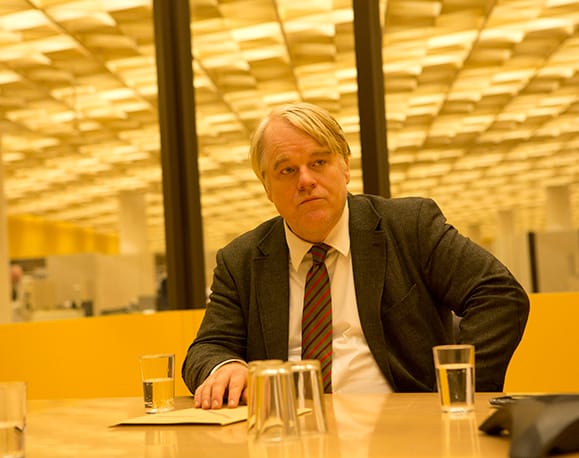Overheard at the Movies: Persecuted, Noah, Wish I Was Here, Life Itself, I Origins, and A Most Wanted Man
Does the film about Roger Ebert get a "thumbs up" at Christianity Today? Is Persecuted an "overwrought, alarmist cog in the paranoia machine"? Is Noah "laughable and silly"? Does Wish I Was Here peddle "mushy feel-goodisms"? And how is Philip Seymour Hoffman in A Most Wanted Man?


Does the film about Roger Ebert get a "thumbs up" at Christianity Today? Is Persecuted an "overwrought, alarmist cog in the paranoia machine"? Is Noah "laughable and silly"? Does Wish I Was Here peddle "mushy feel-goodisms"? And how is Philip Seymour Hoffman in A Most Wanted Man?
My own movie-reviewing work has slowed down this month due to the fact that I'm busy earning my MFA. (I am, however, prepping my review of Boyhood.) But I'm listening to the chatter about all kinds of films, and I'm jotting down excerpts of the most intriguing reviews. I'm also making short notes at my Letterboxd moviegoing journal.
Here are clips from a few intriguing things I’ve overheard at the movies this week from some of my favorite film reviewers...
Alissa Wilkinson at Christianity Today on Life Itself:
In his work, [Roger] Ebert helped us see movies that way: vibrant, vital parts of our communal experience, made fuller by each of us who watches it and then discusses it with others. Movies help us think about who we are and how we live together. And as a movie, Life Itself is a heartfelt, clear-eyed tribute to a master.
•
Scott Renshaw at Letterboxd on Persecuted:
The Fugitive
And here's Mike D'Angelo at The Dissolve on Persecuted:
Persecuted
•
Vic Sizemore at Good Letters on Darren Aronofsky and Noah:
I have read both that Aronofsky claims to be atheist and that he does not. From his previous movies, I think it is safe to say that whatever else he might be, he is a seeker. He is asking the big questions. As I once heard someone describe a writer, “He has his hook baited for Leviathan.”
I went into the movie assuming that he was not a believer in any dogmatic way, was not intending the movie to work on an anagogical level. There was no point worrying about claims he is making about how things actually happen in the realm of the supernatural. It seemed best to view his take on the experience of the believing soul phenomenologically.
•
Keith Phipps at The Dissolve on Zach Braff's Wish I Was Here:
When the film doesn’t strain for twinkly enlightenment, it stoops to find the easiest possible joke. ... It’s admirable for Braff to want his own vision for the film, but the results reveal that it wasn’t a vision worth fighting for in the first place. “God can be whoever you want Him to be,” a rabbi tells Aidan at one point. That pretty much sums up the mushy feel-goodisms the film peddles as if they were the long-suppressed secrets of the universe....
•
Nathan Rabin at The Dissolve on Anton Corbijn's A Most Wanted Man:
Corbijn is a music-video veteran, but his direction is surprisingly understated and methodical, less concerned with individual images or standalone sequences than with closely watching his characters as they closely watch each other, often through surveillance equipment. Corbijn favors a desaturated color palette that makes Hamburg look like a grim industrial hellhole, which adds to the film’s feeling of bone-deep exhaustion, captured in Hoffman’s dryly witty performance as a man chasing one last shot at redemption with the knowledge that he’s almost assuredly doomed.
A Most Wanted Man is a cold film that examines its characters from a clinical distance, but its iciness gives way to raw emotion in a powerful final sequence...
•
Jackson Cuidon at Christianity Today on I Origins:
andAnd on the other hand, there's no sense of a coherent faith proffered in the movie. Sofi believes in a living statue, to some extent, and in reincarnation, and has a Zoroastrian logo hanging around her neck, but it's never clear what effect this belief has on her life, if any. It's just sort of there for Ian to disagree with or find childish, but it doesn't make her less afraid of death, and doesn't seem to make her stronger, or more independent. If anything, the faith presented in the movie is just an institutionalized irrationality—is not wanting to know anything about anything, because mysteries are sexy and exciting.
